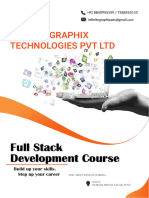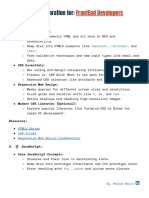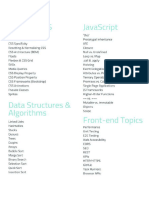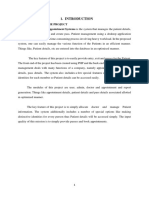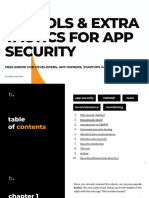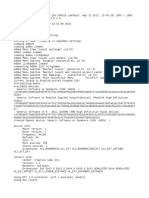0% found this document useful (0 votes)
128 views5 pagesFrontend Interview
This document is a comprehensive guide featuring the top 50 frontend developer interview questions, covering topics such as HTML/CSS, JavaScript, React, performance optimization, web APIs, testing, and security. It includes difficulty breakdowns, interview preparation tips, and additional study resources to aid candidates in their preparation. The guide emphasizes the importance of demonstrating problem-solving skills and a passion for user experience during interviews.
Uploaded by
noirsky2x2xCopyright
© © All Rights Reserved
We take content rights seriously. If you suspect this is your content, claim it here.
Available Formats
Download as PDF, TXT or read online on Scribd
0% found this document useful (0 votes)
128 views5 pagesFrontend Interview
This document is a comprehensive guide featuring the top 50 frontend developer interview questions, covering topics such as HTML/CSS, JavaScript, React, performance optimization, web APIs, testing, and security. It includes difficulty breakdowns, interview preparation tips, and additional study resources to aid candidates in their preparation. The guide emphasizes the importance of demonstrating problem-solving skills and a passion for user experience during interviews.
Uploaded by
noirsky2x2xCopyright
© © All Rights Reserved
We take content rights seriously. If you suspect this is your content, claim it here.
Available Formats
Download as PDF, TXT or read online on Scribd
/ 5
















